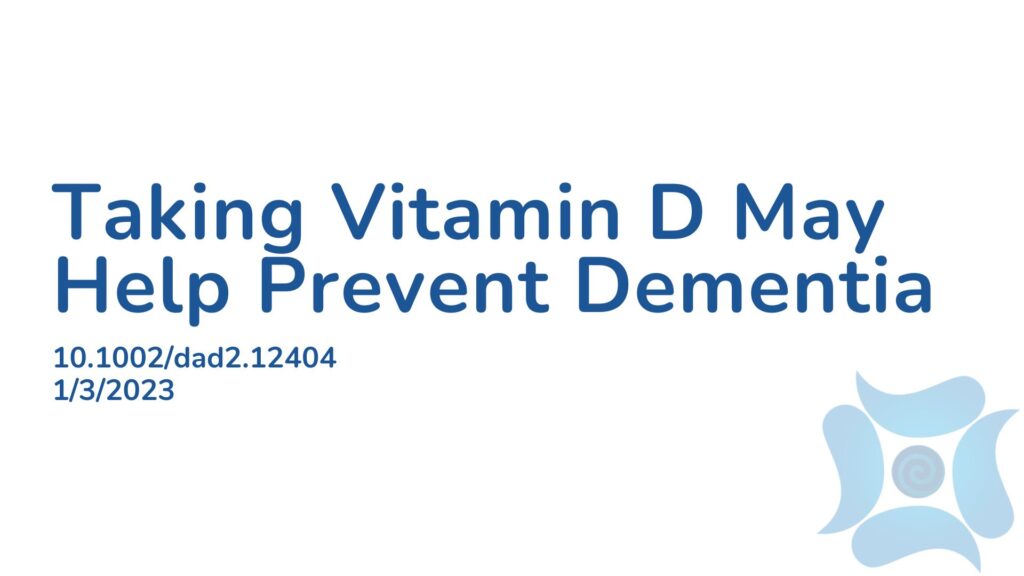Summary:
There are currently more than 50 million people globally who live with dementia and this number is expected to triple by 2050. This prospective cohort study analysed the impacts of vitamin D supplementation in 12,388 participants without dementia. The participants exposed to vitamin D had a 40% lower risk of developing dementia and it was notably more effective in women versus men. Vitamin D also proved to be more effective in people without cognitive impairment compared to those with cognitive impairment. This paper concluded that vitamin D plays an important role in the prevention of dementia, including those at high risk due to their age.
Abstract:
Introduction: Despite the association of vitamin D deficiency with incident dementia, the role of supplementation is unclear. We prospectively explored associations between vitamin D supplementation and incident dementia in 12,388 dementia-free persons from the National Alzheimer’s Coordinating Center. Methods: Baseline exposure to vitamin D was considered D+; no exposure prior to dementia onset was considered D−. Kaplan–Meier curves compared dementia-free survival between groups. Cox models assessed dementia incidence rates across groups, adjusted for age, sex, education, race, cognitive diagnosis, depression, and apolipoprotein E (APOE) ε4. Sensitivity analyses examined incidence rates for each vitamin D formulation. Potential interactions between exposure and model covariates were explored. Results: Across all formulations, vitamin D exposure was associated with significantly longer dementia-free survival and lower dementia incidence rate than no exposure (hazard ratio = 0.60, 95% confidence interval: 0.55–0.65). The effect of vitamin D on incidence rate differed significantly across the strata of sex, cognitive status, and APOE ε4 status. Discussion: Vitamin D may be a potential agent for dementia prevention.
Article Publication Date: 1/3/2023
DOI: 10.1002/dad2.12404



